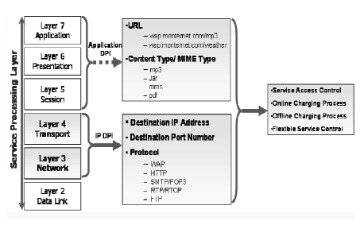Content

Don’t scrimp on the time – incorporate various possibilities so that clients are not shocked if the outcome, over which you have no control, differs from what they had hoped. Visits to clients at no charge to learn about their concerns and understand their business. The seller must understand costs, set profit targets and gauge market demand. The decision ultimately is a matter of the seller’s choice. There will be changes in what you do for your clients – and in what they do for you. You will need to explain carefully how the relationship will change.
Once you’ve developed your menu, it’s time to have a discussion with your clients about the scope of services. With hourly billing, you may have waited until the project was done, calculated the hours multiplied by dollars, and then invoiced the client. But value pricing requires upfront conversations to determine exactly what is and is not included. Some legal experts define value-based billing as moving legal work away from the attorney’s point of view and towards the client’s point of view. It involves looking at the client’s goals and their perceived value in reaching those goals. You then use that information to develop a singular value for the matter at hand.
For example, perhaps they’ll have to do weekly bank reconciliation themselves. That way you can be their trusted advisor using up-to-date information. They won’t be able to simply dump their books on you once a year. The payback is they’ll get a more useful service from you. Clients who know how much they’ll be charged in advance are more likely to communicate better with you.
Friends and family of a new mother don’t want to hear about the labor pains; they really only want to see the baby. Similarly, clients aren’t interested in how many hours it would take to clean up the books or complete a tax research project. After all, clients don’t buy your hours – they want you for your knowledge, innovation and solutions. Value pricing involves setting a fixed price in advance for a service measured by the value it creates for the client. For accountants who have always billed by the hour, value pricing requires a paradigm shift. Previously Toby was Chief Practice Officer at Akin Gump Strauss Hauer & Feld L.L.P. and Director of Pricing for Vinson & Elkin. Toby maintains the3 Geeks and a Law Blog with two colleagues and tweets as @gnawledge.
Better Client Conversations
Your mindset must change to truly create services that your clients want and value rather than those they have to have. Any type of change in a firm requires confidence and courage, but perhaps none more so than changing the way you price your services. Having a practical and steady strategy for valuing your services will create confidence. As a leader in your firm, you are being watched closely by your clients and your staff.
The agency will continue to work with you until you have reached your business goals. On the other hand, you are often locked into a long-term service retainer contract, which can be confining if you aren’t satisfied with the quality of work provided. Because it all comes down to scale, larger companies will often pay more than smaller businesses. For instance, an agency who uses value-based billing would charge Pepsi or Ford a whole lot more for a logo than they would a small business in town with 2 employees.
Value Pricing Liberates Your Firm
Too many times the amount of the investment is unknown, which means any expectation for a return is non-existent. Fixed ratesdo encourage agencies to work more efficiently in order to complete the project in the allotted timeframe. The downfall of this pricing method can be putting emphasis on getting as much done as possible, in as little time as possible – rewarding quantity over quality. This can impose damaging limits on creativity, since everyone is focused on sticking to the original scope.
That destroys any incentive to improve your business processes. The cost stays the same regardless of the amount of time taken to perform the task. When you explain your prices in terms of the value they generate for your clients, they’re able to understand exactly what they’re paying for. You can tailor your services to different clients with varying needs to ensure each client is getting the service they require at a fair price.
Not only is it a frequent topic at accounting conferences; many accountants rave at how it has positively transformed their practices. However, the value-pricing highway is full of curves and “proceed with caution” signs.
Simple projects can drag on and on because the agency doesn’t feel the need to do their best work quickly. In reality, because most clients understand they do not have the technical or educational qualifications to do the task , they are willing to pay for the value of your services. Your client comes to you because they have an idea of the value of having certain work done. Some clients say your quotes are too expensive, others accept them. This demonstrates there is little connection between your pricing and what the client sees as value.

Your clients no longer need to dread receiving an unexpectedly high invoice, and you won’t have to dread justifying the hours you spent on an engagement. Your staff will be free from the stress of filling out timesheets, and you’ll no longer be scrambling to justify the cost of investing in technological innovation. AICPA recommends offering tiered service packages to make your clients feel more in control of the pricing conversation and give them choices as to the level of service they receive. Clients can choose from a range of options that covers everything from your most basic accounting services to premium-level service.
Tip Of The Week: New Progressive Timesync Web App
Although accounting firms have a long standing tradition of hourly billing, an increasing number of firms these days are going down the less-traveled road of value pricing. Say you have a client for which you provide monthly accounting services and prepare tax returns for an S corporation and two owners.
- Opponents to fixed-price agreements worry about losses and cost overruns.
- Value pricing offers that – hourly billing usually doesn’t.
- Value pricing gives the client a fixed price upfront, so there are no surprises.
- It’s the old butcher’s trick of placing a thumb on the scale.
- Yet, as the practice of law evolves and advances, attorneys are realizing that this model of value-based billing may not be the optimal choice.
So many say “just do it” when discussing “new normal” pricing strategies in the legal market. The thinking is that you should just pick a number that meets a client’s value proposition and go with it. While the simplicity of this is compelling, however, covering some fundamentals before you “just do it” will pay off handsomely for both law firm and client alike.
You agree to take all necessary steps to insure that your employees and agents abide by the terms of this agreement. Enter your email address and you’ll start getting all sorts of great info to help your business. If you put in the advanced effort, you can go into each matter with open eyes and handle it in a way that maximizes profits while minimizing costs. Look at the case carefully before taking it on, identifying each of the necessary steps for meeting the client’s goals. If you have taken on a similar case in the past, you may go back and review what was involved in bringing the matter to an end. If you have never before handled this type of case, you may consider consulting with a colleague or mentor who can provide some insight. Descriptions of promises made and kept, complete with examples of value and service as defined by both parties in the engagement agreement.

It’s essentially a fixed-fee based arrangement, where the client agrees at the outset of the case to pay a flat fee for your services. Regardless of how many hours the case ends up requiring, the client pays the agreed upon fixed fee.
Some legal experts assert that this type of behavior is more concerned with furthering the financial goals of the firm than the overall objectives of the client. Clients prefer value-based billing because it provides them with upfront knowledge of their legal costs, with no surprises on the end. They are provided with information before representation begins, so they know exactly what the case will entail and how much it will cost. Controversies arise over what is a reasonable price when a client fails to see the “value” being offered. Every time you go to a price discussion, there will always be someone who will be willing to lower the price further.
It takes dedication and creativity to safely arrive at the destination of a more profitable practice. Grau & Associates, a premier accounting practice based in South Florida, has promoted David Caplivski, CPA, to partner. Caplivski will be responsible for supervising a wide range of accounts and teams.
Erika is a regular contributor to TimeSolvand a variety of other publications. There is some argument within the legal community about the billable hour and its usefulness in advancing the interests of the clients. When you present your client with a fixed fee for a matter, you are giving them a value for their case and the work they provide. Of course, the number of necessary hours goes into calculating your value, but the client sees the matter in terms of a set value, not how many hours you spend on it. There’s that word again, “reasonable.” Make sure clients understand that they’re entering a two-way relationship. The lawyer agrees to perform to the best of his or her ability in accord with professional standards, and the client agrees to communicate and cooperate fully – which includes paying the bill. Time spent preparing your clients for interactive events such as negotiation sessions, depositions, and testimony so they know what to expect and are prepared for what might happen.

